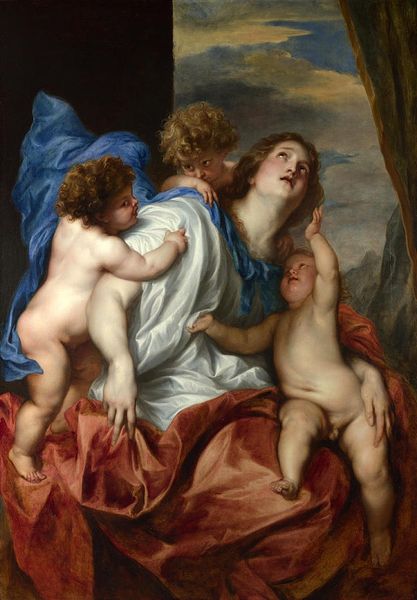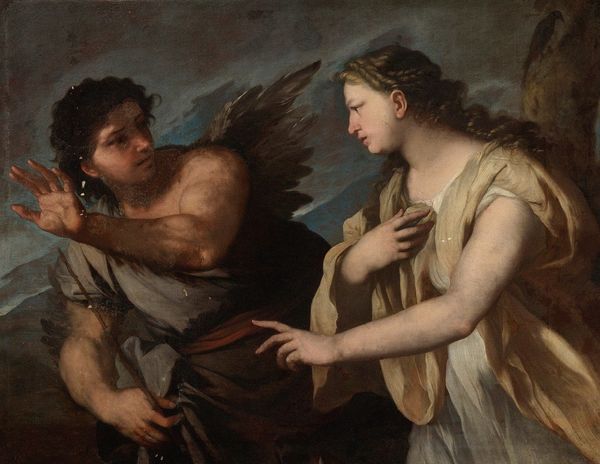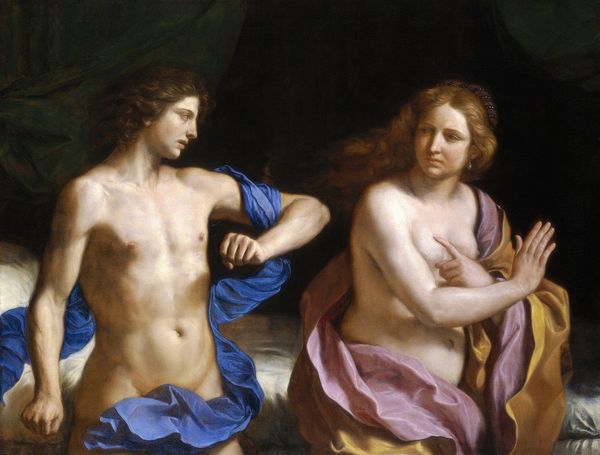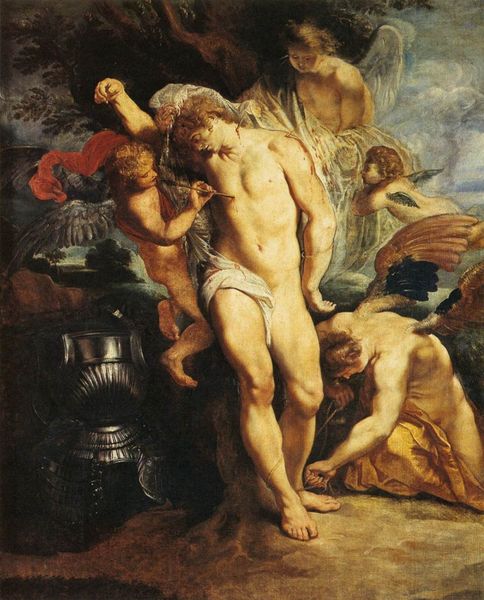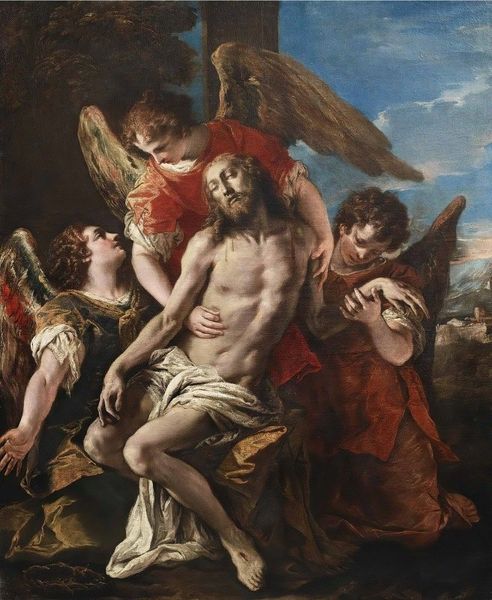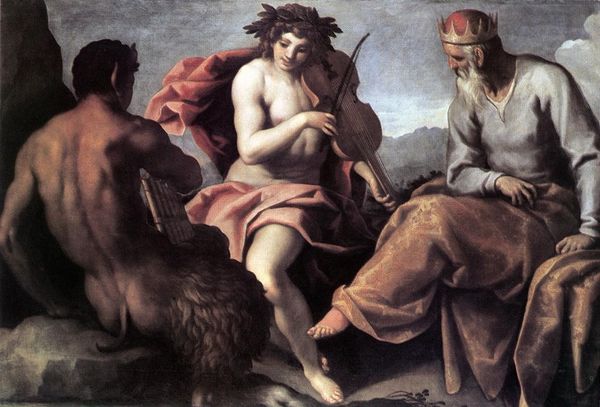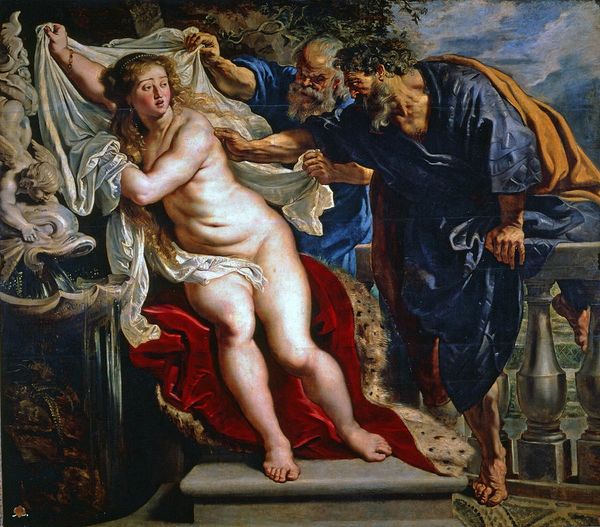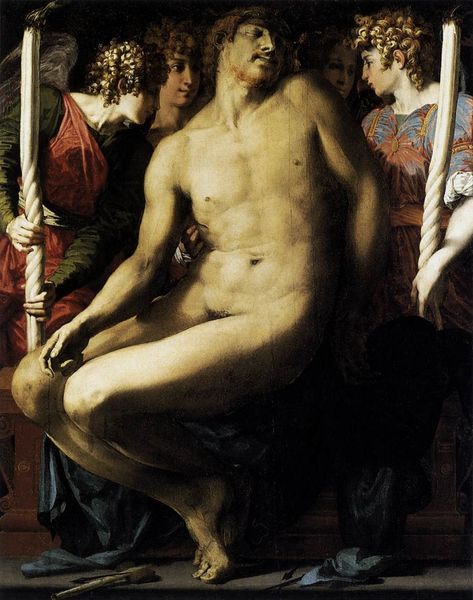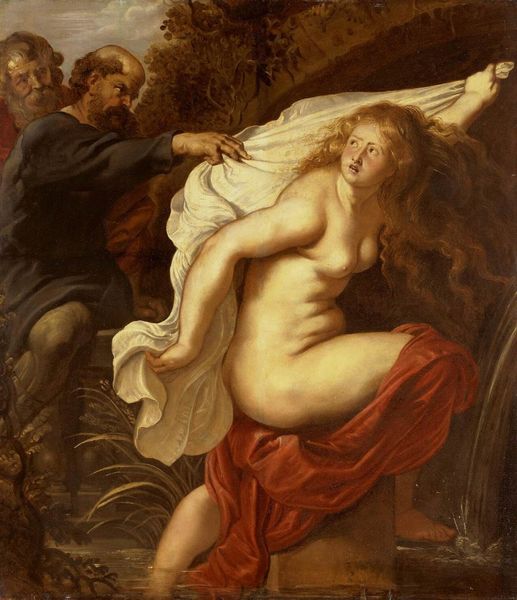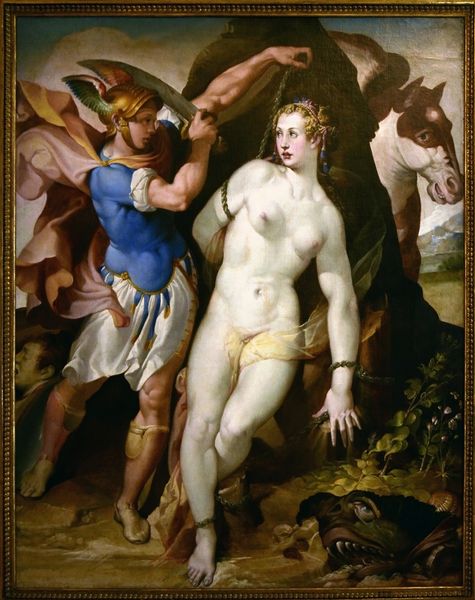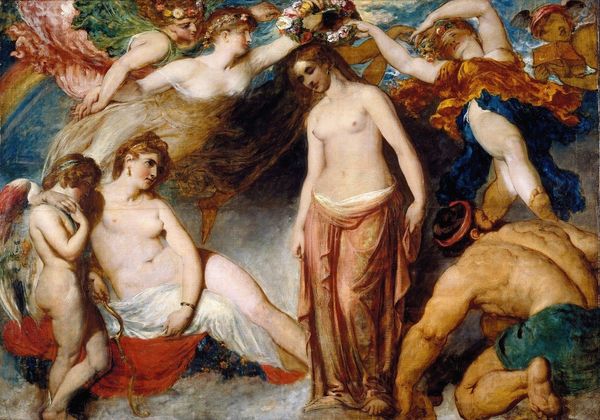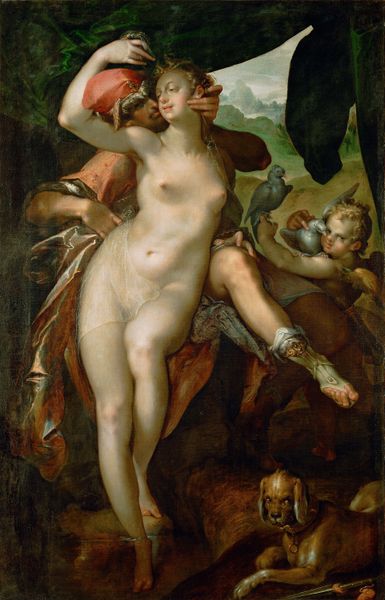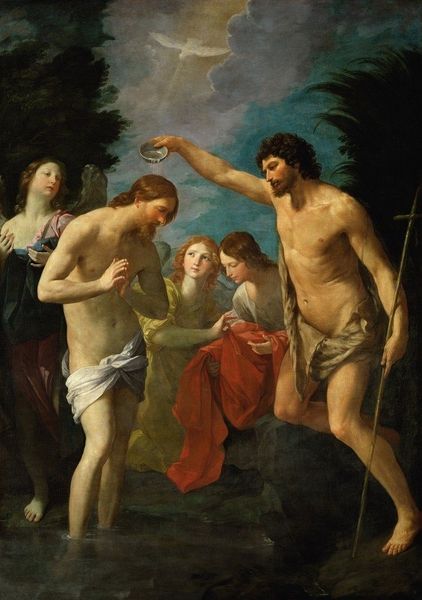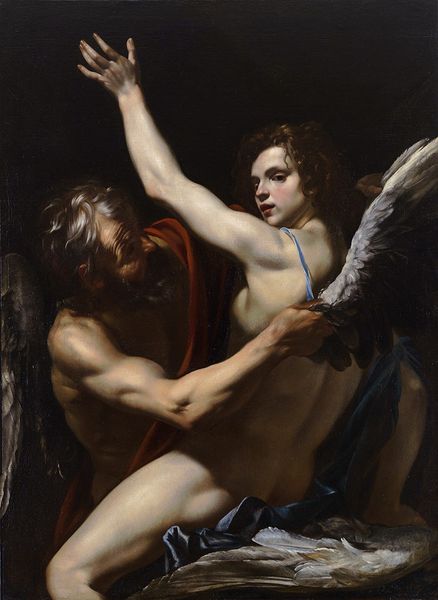
oil-paint
#
baroque
#
oil-paint
#
landscape
#
figuration
#
mythology
#
history-painting
#
nude
Copyright: Public Domain: Artvee
Anthony van Dyck painted 'Daedalus and Icarus' in the 17th century, drawing from Greek mythology at a time when the aristocracy were commissioning art that glorified the Classics. The painting captures the poignant moment before Icarus's tragic flight. We see Daedalus, a master craftsman, fitting wings onto his son, Icarus. The narrative of flight, freedom, and the dangers of hubris is central to the myth, but what does it mean to frame a father-son relationship this way? Van Dyck accentuates Icarus's youth and vulnerability in contrast to Daedalus’s more worldly appearance. The soft, pale skin of the son is in juxtaposition to the rougher, tanned skin of the father which perhaps suggests their different experiences of life and the world. Is Van Dyck reflecting on the responsibility of parenthood or a cautionary tale about the ambitions of youth? This painting acts as a moral lesson, and reflects on personal relationships, with emotional undertones that invite reflection on power, freedom, and family bonds.
Comments
No comments
Be the first to comment and join the conversation on the ultimate creative platform.
